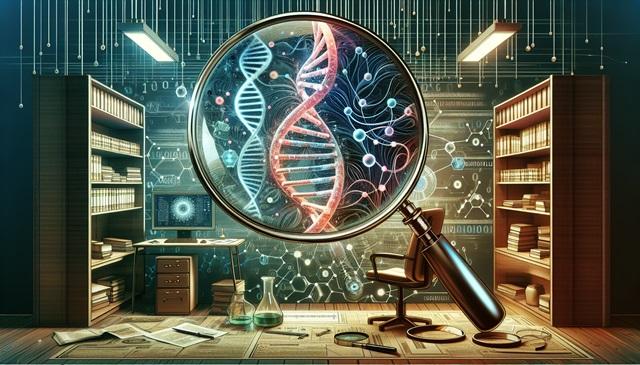The Importance of Genetic Genealogy in Criminal Investigation
Imagine a world where cold cases and unsolved mysteries find closure, not years later, but within a relatively short span, thanks to the marvels of modern science and ancestral sleuthing. This is not a plot lifted from a sci-fi novel but the real-world impact of genetic genealogy in criminal investigations. This innovative field seamlessly blends the study of ancestry through DNA with the meticulous art of genealogical research.
And in the midst of this fascinating convergence, a professional certification pathway has emerged, which offers genealogy certificate program tailored for those intrigued by the crossroads of genetics, genealogy, and law enforcement.
Cracking cases wide open
The forensics world was shaken to its core when genetic genealogy helped crack its first high-profile case. Suddenly, detectives had a powerful tool at their disposal, capable of breathing new life into investigations that had long gone cold. Think about the countless mysteries that have been solved; perpetrators identified decades after their crimes, bringing long-awaited peace to grieving families. This revolutionary approach relies on the comparison of crime scene DNA with vast databases, meticulously pieced together by genealogy enthusiasts and professionals, to find familial matches and ultimately, the suspect.
Genetic genealogy has not only redefined the very nature of criminal investigations, but it has also delivered an unforeseen deterrence factor. Would-be offenders are now faced with the reality that even the smallest genetic trace left behind can serve as an immutable witness against them. As the field progresses, law enforcement agencies worldwide are increasingly seeking out specialists trained in genetic genealogy, amplifying the need for cross-disciplinary expertise in both the scientific and legal realms to effectively leverage DNA's storytelling prowess.
Navigating through murky ethical waters
However, as the saying goes, with great power comes great responsibility. The application of genetic genealogy in law enforcement has spurred intense debate over privacy and ethics. The heart of the controversy lies in the use of public DNA databases. Individuals who submit their genetic information to trace their lineage might unknowingly become the key to unlocking a family member's ties to a crime. Questions surrounding consent, the right to privacy, and the potential misuse of genetic information highlight the need for stringent ethical guidelines and protective measures in this rapidly evolving field.
In response to the ethical conundrums presented by genetic genealogy, there is a rise in calls for an international consensus on the usage of genetic databases. Professionals in the field must therefore remain vigilant and informed about the evolving legal frameworks that govern genetic data. Public outreach and education campaigns are similarly critical, aimed at clarifying the potential civic contributions of genetic genealogy while emphasizing the importance of informed consent and data security.
According to a report by the Electronic Frontier Foundation, over 60% of Americans of European descent can be identified through genetic genealogy databases, raising concerns about the scope and implications of genetic surveillance.
Where do we go from here?
As we forge ahead, the role of genetic genealogy in solving crimes is poised to expand. Technological advancements promise even more sophisticated tools for analysts and genealogists to refine their search for truth. However, the success of this endeavor hinges not just on technological prowess but also on fostering a harmonious relationship between genealogists, law enforcement, and the wider community. Ensuring that advancements in genetic genealogy are pursued with a steadfast commitment to ethical standards will be essential. Furthermore, educating upcoming professionals through comprehensive programs that offer a genealogy certificate program will equip them with not only the technical skills but also an understanding of the ethical landscape they must navigate.
Closing remarks
Genetic genealogy represents a beacon of hope for solving crimes, underpinned by the promise of technology and the timeless human quest for justice. Its use in criminal investigations opens a myriad of possibilities, from unveiling the truth behind decades-old crimes to instilling in law enforcement a powerful means of justice. Yet, careful consideration of privacy and ethical guidelines are needed to ensure that this potent tool serves the greater good without compromising individual rights. As it stands, the intersection of genetics, genealogy, and law enforcement through genetic genealogy is reshaping the way we approach criminal justice, one DNA strand at a time.

